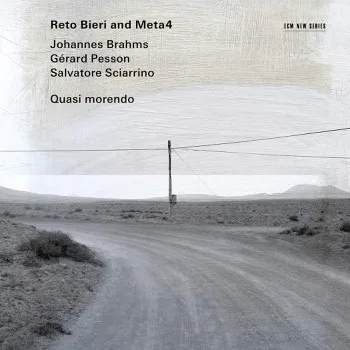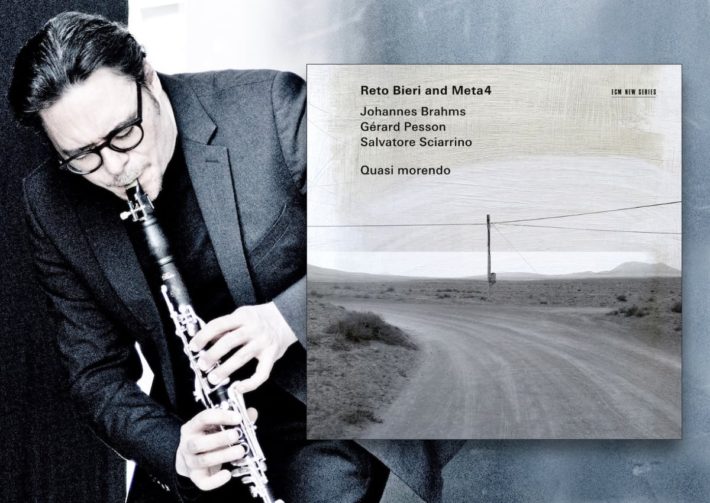The ear needs a short time to adjust to the Meta4 Quartet’s sound, which is lean, with almost no vibrato. Some will call it “historically aware”, yet there is more than mere theory to their handling of musical phrases. It is inherent to their approach. Once the ear adjusts, you understand the sensible way they balance their roles with clarinetist Reto Bieri, whose deep, mellow sound is projected almost effortlessly throughout.

Right out the gate, one feels this is both an intimate and substantial account of The Brahms Clarinet Quintet. It feels more like a friendly exchange of long-time colleagues than a public concert, as this quintet was originally conceived. Highlights are many, but there is no doubt that the Adagio is exceptionally well done, with a level of concentration of the highest order by any ensemble, big or small. The uniformity of sound between the sting interments and the way Bieri exchanges roles as soloist and accompanist is truly masterful.
There is playfulness too, as in the third, “Andantino” movement, where Bieri adds quiet vibrato and quick appoggiaturas. In the middle section, the clarinetist ads the fast runs as improvisation and the strings follow with cheeky Glissandi. The final variations have an inevitable feel to it (“quasi morendo”?), moving towards the end as nothing else has been left unsaid. The results are deeply moving, not with exaggerated tragedy, but with a calm serenity. This is one of the best Brahms Clarinet Quintet we had in years, and it simply needs to be heard.

Prelude and Epilogue of Solo Clarinet
As a prelude and epilogue, Bieri performs to solo clarinet pieces. Salvatore Sciarrino’s “Let Me Die Before I Wake” is a fascinating piece instrumentally, demanding the player to play contrapuntal lines, bringing out surprising sonic elements from this usually one-voice instrument. This piece was already included in one of Bieri previous albums, and ECM says it’s a “new exploration”. To these ears, Bieri found a way of making this new rendition more sophisticated, playing some segments more hushed, with contrasts less intrusive.
The epilogue is a segmented rearrangement of Brahms’ fourth Ballad for piano (Op. 10, No. 4) by Gérard Pesson. It’s an interesting closing thought to this album, even if most listeners will surely prefer the piano original. The recording, as well as the documentation, is on par with ECM usually high standards. This album should be in any Brahms collection for the Clarinet Quintet alone.
“Quasi Morando”
Brahms – Clarinet Quintet, Op. 115
Salvatore Sciarrino – Let Me Die Before I Wake (1982) for solo clarinet
Gérard Pesson’s – Nebenstück” for clarinet quintet
ECM Records, CD 2557




















